Published on Show Me Mizzou August 25, 2022
A degree in social work opens doors to a range of careers and disciplines. But at its core, social work is a career for people who want to improve the well-being of individuals and communities. Here’s a look at six MU social work graduates who are helping to build a more just and equitable world.
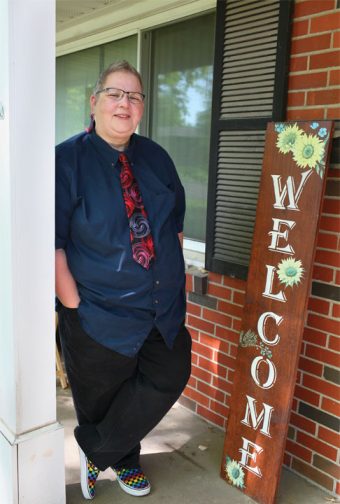
Sower of Hope
Becky Beck didn’t set out to become a social worker. Her original plan was to become a teacher. In her final semester in the MU College of Education, special education Professor Tim Lewis recognized Beck’s passion for social justice and desire to be a sower of hope for those in need of advocacy and support.
After she graduated with her master’s from the MU School of Social Work, Beck, BS Ed ’99, MSW ’01, helped launch the Center Project in 2003, a nonprofit resource center for the lesbian, gay, bisexual, transgender, queer and ally community in mid-Missouri. She was board president when it opened the doors to its first brick-and-mortar gathering place in Columbia in 2009. “I still have a piece of the ribbon,” she says.
Beck has also been working with DeafLead since 2001, providing crisis intervention and victim services to the deaf and hard-of-hearing community. One of the state’s few master’s-level social workers fluent in American Sign Language, Beck is the nonprofit’s director of clinical services, offering counseling, advocacy and education to victims of crimes, particularly domestic violence and sexual assault.
“I’m passionate about providing hope and rays of sunlight to people who are in the depths of despair and violent situations,” Beck says. “For people who have experienced abuse, sometimes the best revenge is to be well.”
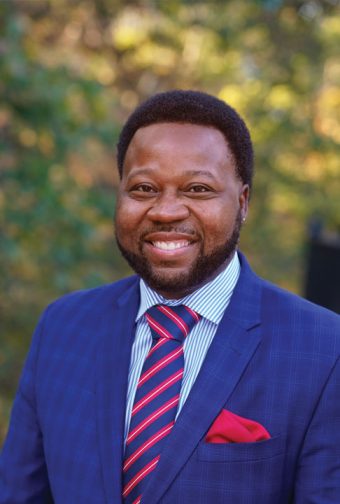
Social Work alum banks his values
Three years ago, Orvin T. Kimbrough left the nonprofit sector for the corporate world of banking. But he didn’t leave his education or his values behind. He combines a banker’s pursuit of profits with a social worker’s focus on creating a more vibrant and inclusive community.
Formerly the chair and CEO of United Way of Greater St. Louis, Kimbrough, BSW ’98, MSW ’00, now serves as chair and CEO at Midwest BankCentre, the city’s second-largest privately owned bank. “I am a social worker who happens to be a banker,” he says. Kimbrough also happens to be the only Black CEO of a bank in the St. Louis area. “My move to Midwest BankCentre is my way of making an even bigger impact through the services we can provide marginalized individuals.”
The impact includes launching programs to help people with compromised credit scores get not only low-interest loans but also checking accounts that require no minimum balance. Throughout St. Louis and its northern counties, the bank will invest $200 million over the next five years creating loans that boost small businesses, promote home ownership, and support nonprofits and community development projects. “We are showing that you can marry purpose with profits,” Kimbrough says.
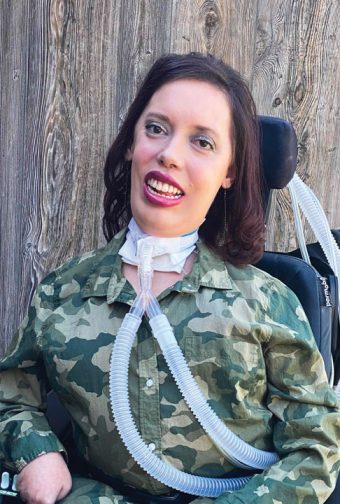
A Knowing Advocate
Caitlin Bartley’s first foray into disability advocacy came in the second grade when her fellow students repeatedly asked about her wheelchair. In response, Bartley persuaded her teacher to let her speak to the class about muscular dystrophy.
Years later, she was still at it. While earning undergraduate degrees, Bartley proposed that the school make two classroom buildings more accessible to individuals with wheelchairs. “It was really exciting to advocate for something like that and then to see it happen. And it’s not just something that benefitted me. It will benefit students in wheelchairs for a long time,” she says.
Today, Bartley, MSW ’17, continues to advocate for others through her job with the Missouri Department of Mental Health’s Division of Developmental Disabilities. She coordinates the state’s participation in the National Core Indicators project, which surveys people with developmental disabilities on whether they are happy with the state services they receive and their quality of life. “The traditional disability service system focused on: ‘OK, this is how you should live your lives. If you are going to use our services, this is what’s going to happen.’ ” Her unit seeks to change that approach. “Yes, we are providing services, but everyone has the right to say how they want to live their lives, and we are there to support the person.”
Meanwhile, Bartley is pursuing a doctorate in social work at Mizzou and plans to research independence and choice in the lives of individuals with developmental disabilities. “A lot of state and national laws could be changed to better support people with disabilities. But those types of changes will not happen unless you have the data to back it up.”
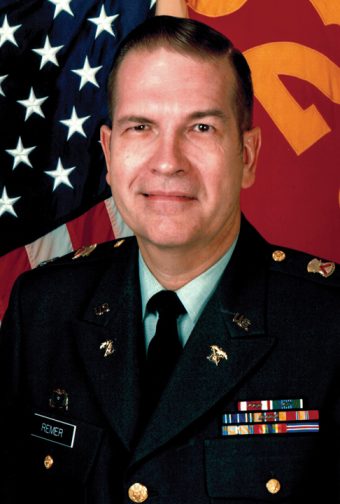
Social Work Pioneer
The Department of Veterans Affairs (VA) is the largest employer of master’s-level social workers in the United States — and Col. Stan Remer, MSW ’68, is a big reason why.
Remer graduated from the MU School of Social Work during the height of the Vietnam War. As a medical social worker at a VA medical center in the 1970s, he saw many soldiers coming back with PTSD.
“We were learning that we needed to treat mental health more forward into the battlefield,” he says. “It’s a lot better if they can deal with combat stress early on.”
In 1977, he helped start the first U.S. Army Reserve psychiatric detachment. It was the first time social workers were integrated into the military combat theater of operations, and it laid the foundation for a major change in the way the VA used social workers.
After 34 years in leadership positions advocating for the role of social work in the VA, Remer retired in 2005. Today, he is a congressional and legislative liaison for the Association of VA Social Workers, representing the now more than 16,000 master’s-level social workers in the VA.
He and his wife endowed the Stanley G. and Sondra S. Remer Scholarship Fund at the School of Social Work. The scholarship is for someone who exemplifies the goals of the North American Association of Christians in Social Work in integrating Christian faith and professional social work.
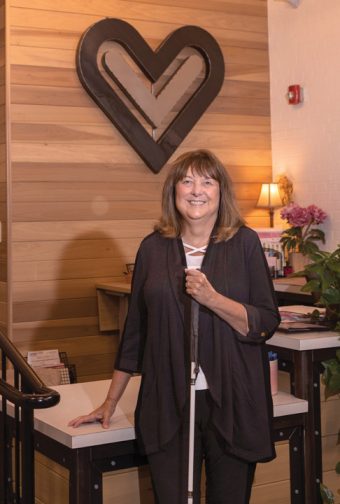
Matching Needs and Resources
In every community, people need help. Fortunately, a corresponding group typically exists with the desire and resources to provide that assistance. But what Jane Williams, BSW ’76, MSW ’77, found surprising was how out of sync the two sides of this equation often are. “There is a constant need for relational support and coordination,” she says. “We try to match the needs of the community with the times, talents and resources in the most effective way.”
Communities’ needs change as the years go by. In 2005, Williams left her 20-year career as a social worker in health care to help set up shelter and a furniture bank for refugees from Hurricane Katrina. Three years later, when she started Love Columbia, community residents needed help finding work and developing job skills in the wake of the Great Recession. By 2015, it was easier to find a job in CoMo than it was to find affordable housing, so Williams and company shifted their focus to transitional housing. And when COVID-19 hit in 2020, Columbians needed fast relief in all these areas.
For now, Williams’ biggest challenge is demand outpacing the organization’s ability to respond. “But I feel like the model is working, and our hope is to keep growing it,” she says. “The skills I learned at Mizzou, along with the connections with faculty and students, have turned out to be exactly what we’ve needed.”
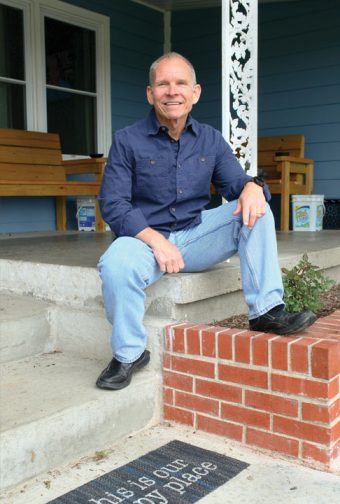
Stepping In2Action for former inmates
Dan Hanneken knows all too well that releasing a person from prison doesn’t free him from the problems, habits and environment that led to incarceration. Before learning that lesson, the assistant teaching professor in the School of Social Work served three sentences as a violent offender. Today, Hanneken, BSW ’06, MSW ’08, not only turns life experiences into teachable moments for social work students but also helps newly released inmates get back on their feet.
In2Action, the residential transition program he founded and directs, provides drug-free housing for up to 50 former offenders at a time on its 4-acre campus in north Columbia. The comprehensive program offers food, clothing, counseling and referrals for other services. “Housing is only one piece of the puzzle,” Hanneken says. “You can give somebody a job, a car and a place to live, but if they don’t stay clean, they lose everything.”
Hanneken credits his religious faith and his determination never to spend another day behind bars as the sources of his successful transition 19 years ago. Recognizing Hanneken’s contribution to society, last year Gov. Mike Parson issued him a full pardon, which restores all rights of citizenship forfeited by his convictions.



